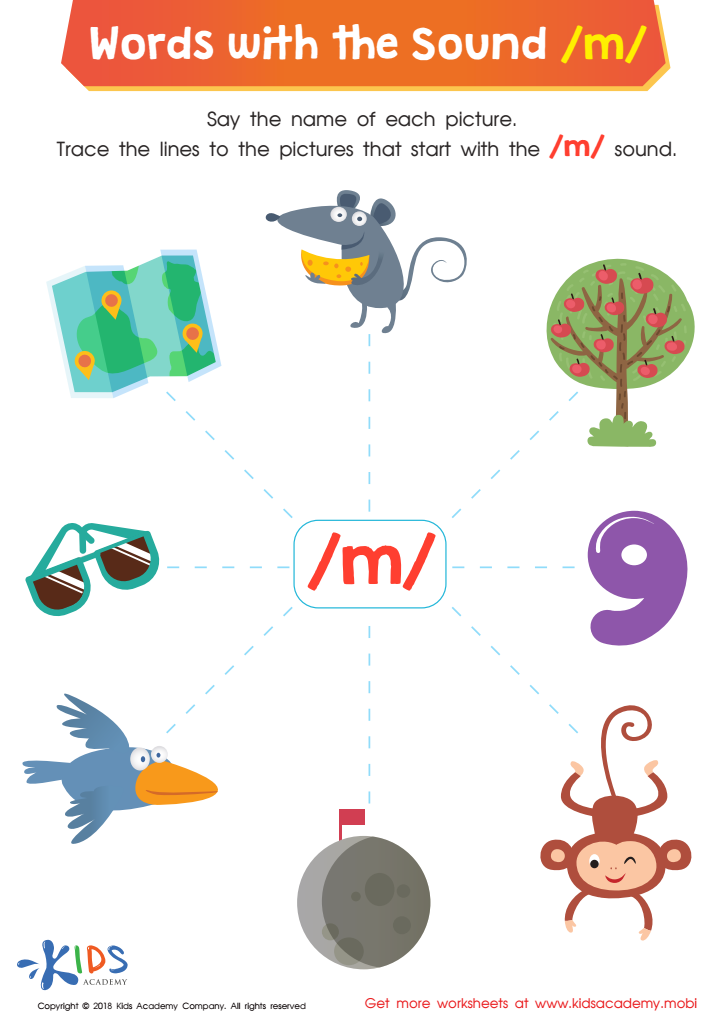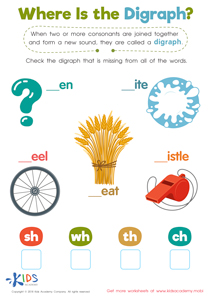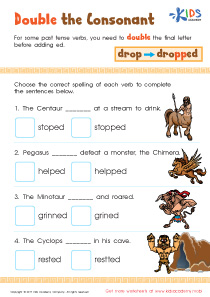Phonics practice Normal Beginning Consonants Worksheets for Ages 6-7
4 filtered results
-
From - To
Boost your child's reading skills with our Phonics Practice Normal Beginning Consonants Worksheets designed for ages 6-7. These engaging activities help young learners master recognizing and pronouncing initial consonant sounds, a fundamental phonics skill. Perfect for classroom use or extra practice at home, these worksheets feature fun, interactive exercises such as matching, coloring, and tracing. Each page encourages students to build their vocabulary and reinforces their understanding of the alphabet. With colorful illustrations and kid-friendly instructions, these worksheets make learning enjoyable and effective. Visit us now to give your child a head start in their reading journey!


Twin Onset Worksheet


Words with sound p Reading Worksheet


Words with sound f Reading Worksheet


Words with Sound M Reading Worksheet
Phonics practice, particularly focusing on normal beginning consonants, is crucial for children aged 6-7 as it forms the foundation of their reading and writing skills. This period in a child's development is critical as they transition from recognizing letters to blending sounds to form words. Understanding beginning consonants enables children to decode words more easily, fostering their ability to read fluently. When children can distinguish sounds associated with specific letters, they not only enhance their reading skills but also improve their spelling and pronunciation.
Encouraging phonics practice involving beginning consonants strengthens a child's auditory discrimination and phonemic awareness, crucial components of early literacy. It aids in expanding their vocabulary and comprehension abilities, making reading a more enjoyable and engaging activity. For parents and teachers, emphasizing these skills helps identify and address any early learning difficulties, ensuring every child receives the support they need to progress confidently.
In essence, prioritizing phonics practice sets a strong educational foundation, fostering language skills essential for all future learning. By integrating playful and engaging ways to practice these skills, parents and teachers can spark a love for reading and learning that lasts a lifetime, paving the way for the child’s academic and personal success.

 Assign to My Students
Assign to My Students










